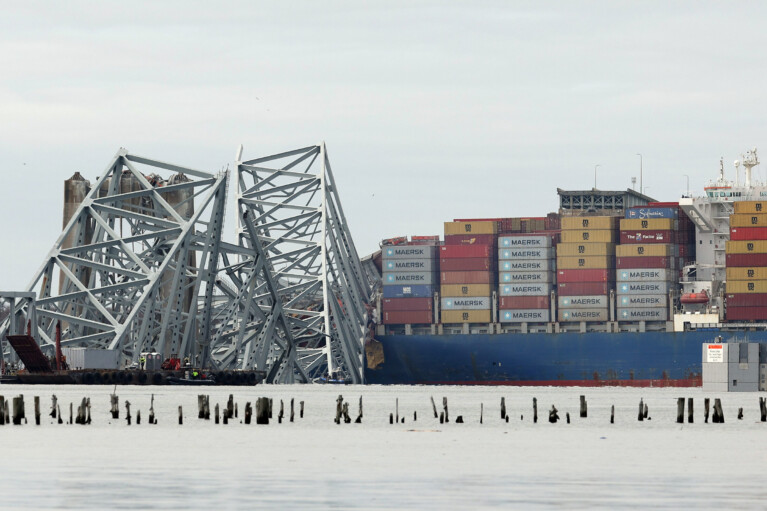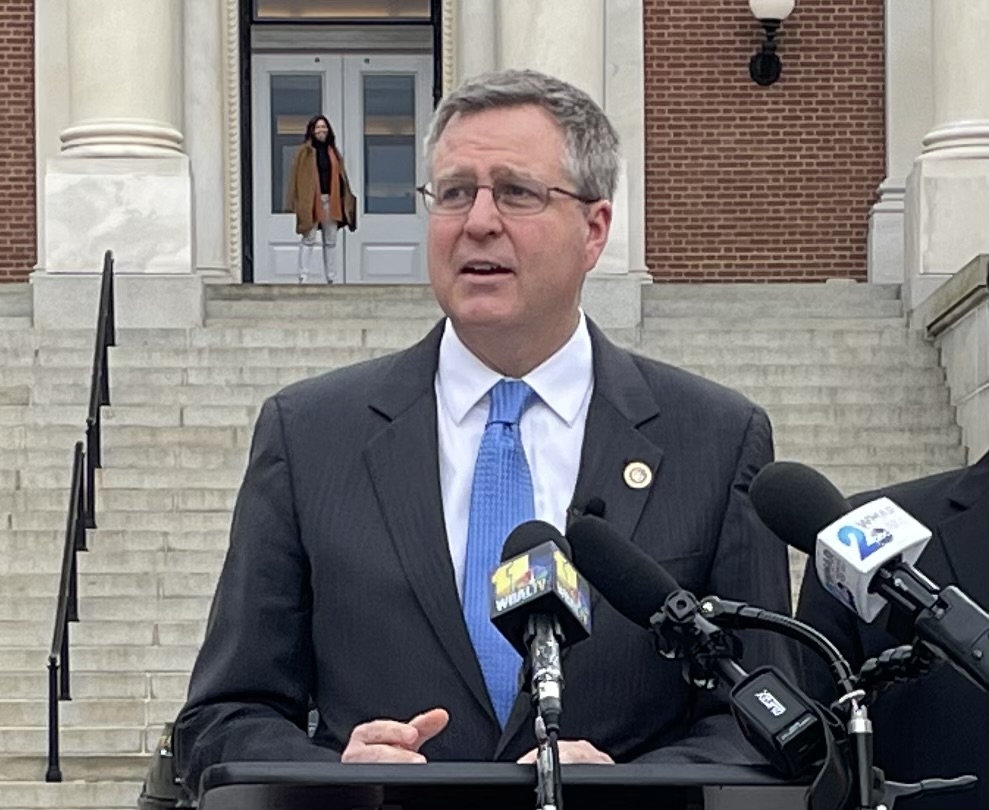Baltimore City Council President Calls For Use of Rainy Day Fund to Boost City

Baltimore City Council President Brandon M. Scott (D) unveiled a number of legislative proposals Tuesday designed to support city residents during and after the COVID-19 pandemic.
“Baltimore, let me be very clear: Baltimore is the city that cannot be broken. We have made it through things before; we will make it through this together,” he said during a virtual news conference.
Notably, Scott has recommended that $25 million be pulled from the city’s rainy day fund to brace for the economic impact. He estimated that the fund’s current balance rests around $90 million.
Scott is calling on the mayor and city administrators to allocate a “small fraction,” or nearly 28%, of the city’s rainy day fund for relief efforts, including:
- $3 million for homelessness services, including a rapid rehousing initiative to lower chances of citizen exposure. He is also calling for a retroactive rent freeze and eviction, rent and mortgage payment moratoriums extending 90 days past Hogan’s eventual lift of the state of emergency.
- $8 million to implement workforce development in health care professions, training workers displaced by the pandemic to perform in high-demand roles.
- $4 million for the city’s cultural institutions and nonprofits that may be at risk of indefinite closure.
- $10 million to create a fund to grant small business loans up to $50,000 to allow businesses to remain afloat during the pandemic.
“In an unprecedented global emergency like this one, everything must be on the table to offset the impact of this crisis on our residents,” Scott said of his proposed allocations.
Scott, who is running for mayor in the multi-candidate Democratic primary on June 2, has also suggested tapping into a series of pre-existing city funds to meet Baltimore’s growing needs, including:
- The Children and Youth Fund, which Scott has suggested could finance child meals and distance learning equipment, like laptops and tablets.
- The Neighborhood Impact Investment Fund, which he has proposed to be repurposed to sustain the needs of small businesses in the city’s poorer neighborhoods.
Scott said that Baltimore may see $170 million in revenue losses and unemployment up to 30% because of the pandemic’s impact.
During the news conference, he requested that unemployment insurance be expanded, calling for the Maryland Department of Labor to reduce wait times for enrollees.
The Department of Labor has seen a surge in unemployment insurance enrollment in the last few weeks, causing extended wait periods. Labor Secretary Tiffany Robinson said during a news conference last week that before the pandemic, an average week saw about 2,000 applications.
During the week that ended March 28, alone, over 84,000 Maryland residents applied for unemployment benefits.
In a document available on the Baltimore City Council website, Scott has also made appeals for prioritized testing, noting that minority and impoverished neighborhoods that already experience health care inequities are poised to be hardest-hit by the pandemic.
During the Tuesday news conference, he declared the city “the birthplace of housing redlining by legislation,” adding that it’s important to understand the spread of the virus by race and zip code to allow city officials to refocus education and prevention efforts to those populations.
Scott isn’t alone in his call for the release of the racial and geographic data breakdowns from the Maryland Department of Health. A number of lawmakers, notably state Del. Nick J. Mosby (D-Baltimore City), have been vocal about the department’s lack of statistical transparency.
“We know that COVID-19 can spread it on people who show no symptoms, Scott said. “We know black and brown residents are disproportionately at risk, and low-income areas, and also are in neighborhoods where we know our health disparities existed long before COVID-19. And if we do not understand that and attack this virus in that manner, we will not be doing justice for the citizens of Baltimore.”




 Creative Commons Attribution
Creative Commons Attribution